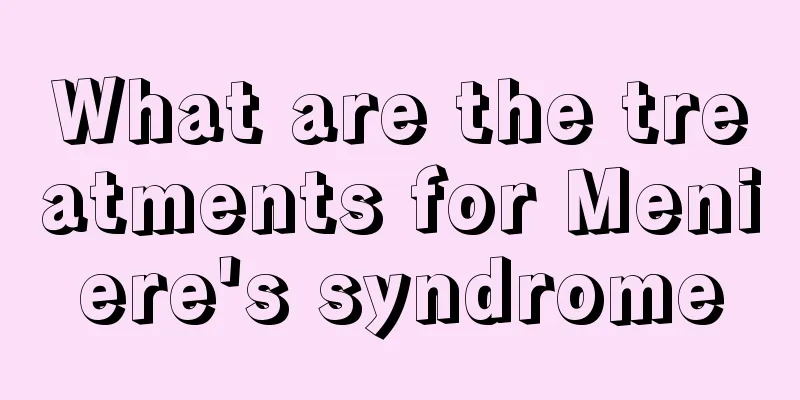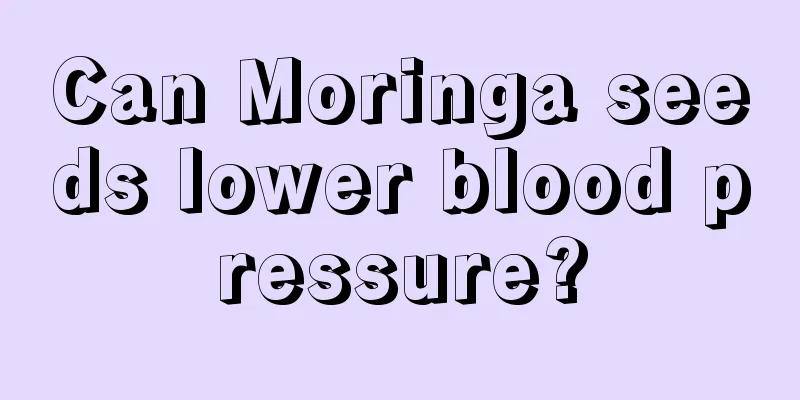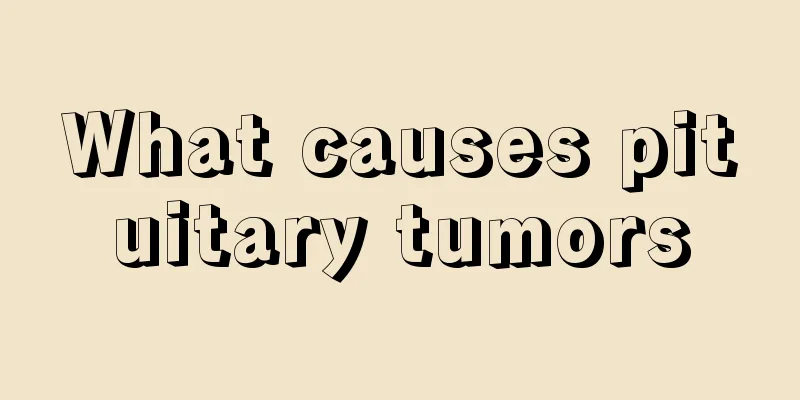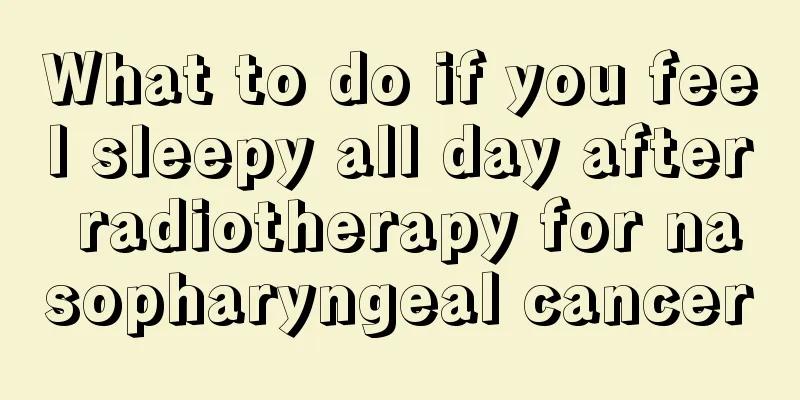What are the treatments for Meniere's syndrome

|
Meniere's syndrome is an inner ear disease that occurs suddenly. Generally, only one ear will be affected and some symptoms will appear. So far, the cause of Meniere's syndrome is still unclear. Generally, young and middle-aged people will suffer from the disease. In recent years, there have been cases where children have also suffered from the disease. Meniere's syndrome is characterized by tinnitus in the ears. Deafness and dizziness, as well as vomiting, make patients feel very painful. If not treated in time, it will cause certain damage to the ears. Now let’s talk about the treatments for Meniere's syndrome. 1. General treatment When an attack occurs, you should lie still, avoid being impatient, eat a light and low-salt diet, limit your water intake, and avoid smoking, drinking, and tea. During the interval period, patients should be encouraged to exercise, strengthen their physical fitness, and pay attention to proper balance between work and rest. 2. Drug treatment 1: Keep quiet and lie still 2: Symptomatic treatment, use of sedatives: such as diazepam, oryzanol; combined with phenergan. 3: Use vasodilators as appropriate: Sibilin, Anisodamine Hydrobromide (654-2) 4: Use diuretics: hydrochlorothiazide, alanine diazepam. 5: Local drug blockade: 10ML of 10% procaine for stellate nerve blockade. 3. Surgical treatment Not all patients with Meniere's syndrome can undergo surgery. Surgery is only suitable for those who have lost their ability to work due to ineffective drug treatment. Patients with unilateral disease. According to statistics, only 5% of patients with Meniere's syndrome are within the scope of surgical treatment. We also have to subtract patients with diseases of the heart, brain, liver, lungs, spleen, and kidneys, so the number of patients who can undergo surgery is very small. Surgery can be summarized into three types: destructive, semi-destructive, and conservative. Surgical treatment is suitable for severe cases: endolymphatic sac decompression, balloon fistula, labyrinthine destruction, and vestibular nerve section. Most patients do not accept destructive or semi-destructive surgeries. Now let me briefly introduce conservative surgery. There are many types of conservative surgeries, including endolymphatic sac incision, balloon decompression, sympathectomy, chorda tympani nerve incision, endolymphatic subarachnoid shunt, stapedial floor fenestration and endolymphatic sac mastoid cavity shunt. Comprehensive analysis shows that most of the surgeries are fenestration decompression surgeries. The International Vertigo Academic Conference concluded that surgical treatment is not ideal, but short-term window decompression surgery has a certain effect. 4. Traditional Chinese medicine treatment White ginger powder: 60 grams of ginkgo nuts, 12 grams of dried ginger. Usage: Dry the above medicines and grind them into powder, divide them into 8 portions, 9 grams each, take 1 portion each morning and evening after meals, boil 12 grams of red dates and 20 grams of astragalus. Those who are not too weak can take the medicine with warm water. The correct method of supplementation should be selected according to the properties of the medicine and analyzed from the perspective of syndrome differentiation. For patients with vertigo, the treatment method is mostly based on syndrome differentiation. The occurrence of dizziness is related to the human internal organs. Insufficient kidney yin causes water to fail to contain wood; insufficient spleen yang causes dysfunction of transportation and transformation; hyperactivity of liver yang causes dizziness and vertigo; imbalance in the rise and fall of clear and turbid substances and accumulation of dampness and phlegm will lead to dizziness. That's absolutely right. Patients with vertigo all have deficiency syndromes, and deficiency syndromes need to be supplemented, and supplementation is the right thing to do. But how to replenish? Specific analysis is needed in terms of specific medication. Clinical observation shows that some tonics work very well, while some tonics make the dizziness symptoms worse after taking them. This is enough to show that the choice of medicine is very important. The correct way to supplement is to choose the medicine accurately, and choose the medicine according to its medicinal properties. Choose the right guiding medicine (medicine guide): The main diseased area of Meniere's syndrome is as small as a millimeter in size and is located inside the temporal bone and close to the inner ear. Currently, the medicines used worldwide cannot penetrate the diseased area. It is necessary to choose an ideal guiding medicine so that the effective medicine for treating vertigo can be delivered to the diseased area and the special effects of traditional Chinese medicine can be exerted through the guiding medicine. |
<<: What are the effects of Modd Dispersible Tablets
>>: What are the symptoms before the onset of Meniere's syndrome?
Recommend
What is the reason for long thighs and short calves
A person's height is closely related to genet...
I have been coughing for more than a month and it hasn't gotten better. Is it lung cancer?
If you have a cough for more than a month and it ...
How long is the large intestine
The large intestine is an important organ tissue ...
What medicine is better for enema for ulcerative colitis
There are many different treatments for ulcerativ...
Deep sleep, this is how you understand it
Clinically, sleep is divided into light sleep and...
What are the early symptoms of laryngeal cancer
Early symptoms of laryngeal cancer may include ho...
What is the best medicine for ovarian tumor
What is the best medicine to take for ovarian tum...
What is the best treatment for cervical cancer? What are the common treatments for cervical cancer?
What is the best treatment for cervical cancer? T...
Will benign intestinal cancer recur if I don't have chemotherapy after resection?
Will benign colorectal cancer recur if chemothera...
Treatment of nasopharyngeal carcinoma
Treatment of nasopharyngeal cancer 1. Nasopharyng...
Is solitary kidney hereditary?
Kidney disease attracts so much attention because...
Which organs can secrete hormones?
The human body secretes more than 75 kinds of hor...
What is the reason why bacteria make people sick?
Bacteria are a common presence in real life, and ...
Why does sweat smell so bad?
Always sweating a lot and with bad smell will aff...
Side effects of blocking injection
The blockade therapy that doctors often mention i...









